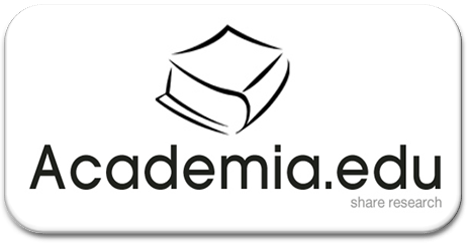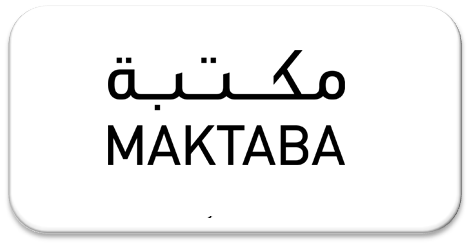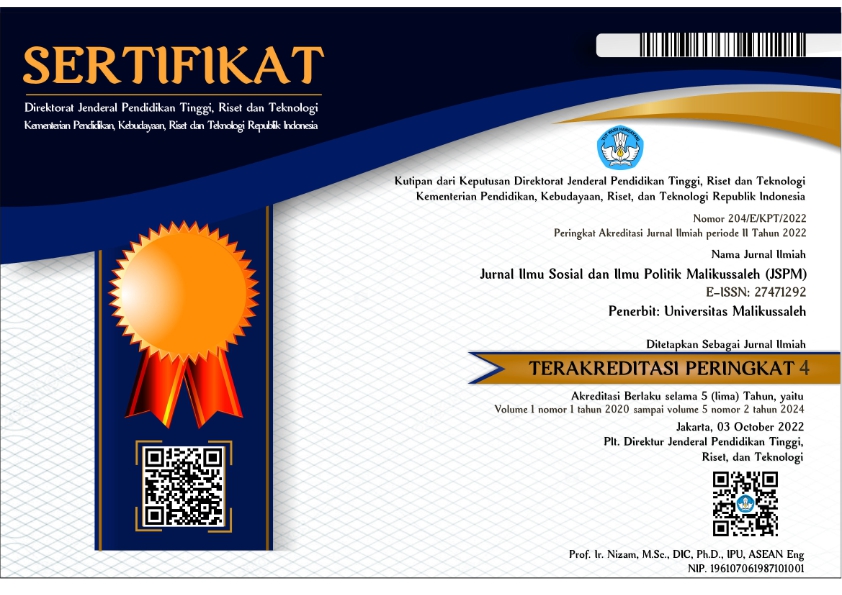Traditional Medication – Rajah: The Rational Choice of Aceh People for Recovering Diseases during the Covid-19 Pandemic
Abstract
This study aimed to explain the reasons of Aceh people's choice for nonmedical treatment - rajah during the Covid-19 pandemic. The qualitative approach was used to address the research problem. The findings showed that people chose nonmedical treatment with Rajah reading prayers and verses of the al-Quran then blowing on them and the water they brought to be drunk at their homes. They chose this treatment method by considering some rational reasons. Among the most prominent reasons; they were afraid to go to the government's public health service center for fear of being tested for antigens first and being judged to be positive for Covid-19, so they were quarantined and isolated from the community, both themselves and their families. In addition, Rajah was considered effective in curing diseases that resemble the symptoms of Covid-19, such as fever, flu, and cough. Even so, this study explains beyond the two reasons that are categorized as instrumental rational choices to achieve the goal – recovering from illness and avoiding threats of isolation. This study confirms that Aceh people put avoiding social isolation as the main rational choice in determining social action.
Penelitian ini bertujuan untuk menjelaskan alasan pilihan masyarakat Aceh untuk berobat secara nonmedis – rajah di masa pandemi Covid-19. Pendekatan kualitatif digunakan untuk menjawab masalah penelitian. Temuan menunjukkan bahwa masyarakat memilih pengobatan nonmedis dengan membaca doa Rajah dan ayat-ayat al-Quran kemudian ditiupkan ke atas mereka dan air yang dibawanya untuk diminum di rumah masing-masing. Mereka memilih metode pengobatan ini dengan mempertimbangkan beberapa alasan yang rasional. Di antara alasan yang paling menonjol; mereka takut ke pusat pelayanan kesehatan masyarakat pemerintah karena takut dites antigen terlebih dahulu dan dinilai positif Covid-19, sehingga mereka dikarantina dan diisolasi dari masyarakat, baik diri sendiri maupun keluarganya. Selain itu, Rajah dinilai efektif menyembuhkan penyakit yang menyerupai gejala Covid-19, seperti demam, flu, dan batuk. Meski begitu, penelitian ini menjelaskan di luar dua alasan yang dikategorikan sebagai pilihan rasional instrumental untuk mencapai tujuan – pulih dari penyakit dan menghindari ancaman isolasi. Studi ini menegaskan bahwa masyarakat Aceh menempatkan menghindari isolasi sosial sebagai pilihan rasional utama dalam menentukan tindakan sosial.
Keywords
Full Text:
PDFReferences
Adrian, A., Wibowo, K., & Sarjana, S. H. (2022). Post-Pandemi Covid-19 Economic Recovery. Jurnal Manajemen dan Bisnis Jayakarta, 3(2), 72-81.
Ansari, M. I., Adji, W. S., & Raidah, R. (2022). The Concept Of Self Healing Perspective Of The Qur'an and Hadith. Al Qalam: Jurnal Ilmiah Keagamaan dan Kemasyarakatan, 16(3), 845-863.
Astutik, D., Yuhastina, Y., Ghufronudin, G., & Parahita, B. N. (2022). Guru dan Proses Pendidikan dalam Pembelajaran Daring di Masa Pandemi Covid-19. Scholaria: Jurnal Pendidikan Dan Kebudayaan, 12(1), 46-54.
Bere, A. (2022). Analisis Proses Pembelajaran Dalam Jaringan di Masa Pandemi Covid-19. MUKADIMAH: Jurnal Pendidikan, Sejarah, dan Ilmu-ilmu Sosial, 6(1), 1-7.
Coleman, J. S. (1994). Foundations of social theory. Harvard university press.
Daher‐Nashif, S. (2022). In sickness and in health: The politics of public health and their implications during the COVID‐19 pandemic. Sociology Compass, 16(1), e12949.
Demeulenaere, P. (2014). Are there many types of rationality? Papers. Revista de Sociologia, 99(4), 515-528.
Deuraseh, N. (2009). Al-Ruqyah with the Qur ‘an and the Dua (the prayer) in Islamic medical tradition. In.
Fajar, M., Annisa, N., & Anggriana, A. J. (2020). dkk.“Bunga Rampai Pandemi ‘Menyingkap Dampak-Dampak Sosial Kemasyarakatan Covid-19.’”. In: Iain Parepare Nusantara Press.
Gusty, S., Nurmiati, N., Muliana, M., Sulaiman, O. K., Ginantra, N. L. W. S. R., Manuhutu, M. A., Sudarso, A., Leuwol, N. V., Apriza, A., & Sahabuddin, A. A. (2020). Belajar Mandiri: Pembelajaran Daring di Tengah Pandemi Covid-19. Yayasan Kita Menulis.
Hanandini, D., & Pramono, W. (2022). Kepatuhan terhadap Protokol Kesehatan Covid-19 di Ruang Publik. Jurnal Sosiologi Andalas, 8(1), 17-30.
Hidayati, D. A., Habibah, S., & Ratnasari, Y. (2022). Strategi Bertahan Hidup Pedagang Pasar Tradisional di Masa Pandemi Covid-19. SOSIOLOGI: Jurnal Ilmiah Kajian Ilmu Sosial dan Budaya, 24(1), 39-56.
Jubba, H., Ferdaus, N. N., Pratiwi, W. I., & Juhansar, J. (2021). Persepsi Masyarakat terhadap Pandemi Covid-19. Dialektika, 14(1), 1-16.
Junaidi, R., & Haryadi, D. (2021). New normal dan produksi bahasa selama COVID-19. Komunikasiana: Journal of Communication Studies.
Lune, H., & Berg, B. L. (2017). Qualitative research methods for the social sciences. Pearson.
Marseliana, M. (2022). Pelaksanaan Strategi Penanganan Covid-19 Pada Masyarakat Kota Palembang UIN RADEN FATAH PALEMBANG].
Miles, M. B., Huberman, A. M., & Saldaña, J. (2018). Qualitative data analysis: A methods sourcebook. Sage publications.
Mohajan, H. K. (2018). Qualitative research methodology in social sciences and related subjects. Journal of Economic Development, Environment and People, 7(1), 23-48.
Najoan, D. (2022). Peranan Agama dimasa Pandemi Covid-19. Jurnal Pendidikan Tambusai, 6(1), 3230-3240.
Owumi, B. (2013). Rational choice theory and the choice of healthcare services in the treatment of Malaria in Nigeria.
Pangoempia, S. J., Korompis, G. E., & Rumayar, A. A. (2021). Analisis pengaruh pandemi COVID-19 terhadap pelayanan kesehatan di puskesmas Ranotana Weru dan puskesmas teling atas Kota Manado. KESMAS, 10(1).
Priyanto, P., Kamal, A. F., & Dahlia, D. (2020). The Effectiveness of Psychoreligious Intervention: Murottal Al-Quran on Pain and Stress Level of Bone Cancer Patient. Indonesian Journal of Global Health Research, 2(4), 375-384.
Putri, E. A., Trisiana, A., Dentatama, J., Widya, K., & Jonggor, Y. (2020). Upaya Pemerintah Dan Peran Serta Masyarakat Dalam Mencegah Penyebaran Covid-19 Di Indonesia. Jurnal Global Citizen: Jurnal Ilmiah Kajian Pendidikan Kewarganegaraan, 71-84.
Qader, M. A., Rahman, M. R. M., & Hossain, M. (2022). Better Prevention of COVID-19 and Infectious Diseases in Islamic Culture: A Study of Islam and Health. Al-Hayat: Journal of Islamic Education, 6(1), 11-36.
Rachman, S., Hamiru, H., Umanailo, M. C. B., Yulismayanti, Y., & Harziko, H. (2019). Semiotic Analysis of Indigenous Fashion in The Island of Buru. Int. J. Sci. Technol. Res, 8(8), 1515-1519.
Rizki, A. (2018). Perlawanan dalam Novel Berlatar Konflik Aceh. Master Bahasa, 6(3), 203-212.
Roach Anleu, S., & Sarantoulias, G. (2022). Complex data and simple instructions: Social regulation during the Covid-19 pandemic. Journal of Sociology, 14407833211066926.
Rosmalia, D., & Sriani, Y. (2017). Sosiologi Kesehatan. Jakarta: Kemenkes RI.
Rostina, R., Adamy, A., Abdullah, A., & Chairurrijal, C. (2020). Perilaku dan Hambatan Pengobatan Keluarga Penderita Skizofrenia. Jurnal Ilmu Keperawatan, 8(1), 66-75.
Rusman, A. D. P., Umar, F., & Majid, M. (2021). Covid-19 Dan Psikososial Masyarakat Di Masa Pandemi. Penerbit NEM.
Seedat-Khan, M., Dawood, Q., & Ramnund-Mansingh, A. (2022). Intersections of the mental, social, economic, and physical burdens of COVID-19 on women in academia. In Academic Voices (pp. 375-389). Elsevier.
Seedat-Khan, M., & Ramnund-Mansingh, A. (2022). The Sociology of a COVID-19 Virtual. In Exploring the Consequences of the Covid-19 Pandemic (pp. 417-442). Apple Academic Press.
Setiawan, H., Ariyanto, H., & Oktavia, W. (2021). A Case Study: Murotal Distraction to Reduce Pain Level among Post-Mastectomy Patients. International Journal of Nursing and Health Services (IJNHS), 4(3), 325-331.
Simanullang, R., & Situmorang, P. C. (2020). Managemen stres di tengah dampak Covid-19. GUEPEDIA.
Simon, S., Dully, S., Yulianto, T., & Wibowo, A. P. (2021). Pandemi Covid-19 Dalam Perspektif Teologi Pentakosta. Ritornera-Jurnal Teologi Pentakosta Indonesia, 1(1), 65-77.
Singh, J., & Singh, J. (2020). COVID-19 and its impact on society. Electronic Research Journal of Social Sciences and Humanities, 2.
Suharko. (2022). Risiko dalam Era Antroposen: Perspektif dan Area Kajian Sosiologi. https://fisipol.ugm.ac.id/wp-content/uploads/sites/1056/2022/02/Pidato-Guru-Besar-Prof.-Suharko-22-Februari-2022-Proof-15-Februari-2022.pdf
Syahputra, A., Armayani, R. R., & Syahmalluddin, L. S. (2020). Pengaruh Covid-19 Terhadap Aktivitas Sosial Dan Ekonomi Masyarakat Lhokseumawe. Etnoreflika: Jurnal Sosial Dan Budaya, 9(3), 226-237.
Villa Rohmatur, R., & Setiawan, M. D. (2021). Eksistensi Nongkrong di Masa Pandemi. POTRET PPKM DALAM KEHIDUPAN MASYARAKAT INDONESIA, 239.
Yulianingsih, Y. (2020). Mamoh Ranub Kesembuhan Mulia Etnik Aceh–Kabupaten Aceh Barat. Umbara, 3(1), 54-58.
Zulfikar, W. A., & Auliansyah, V. (2020). Public perception of physical distancing in preventing the spread of coronavirus disease (COVID-19) in the city of Banda Aceh in 2020. Indian Journal of Public Health Research and Development, 1579-1586.
DOI: https://doi.org/10.29103/jspm.v3i1.7222
 Article Metrics
Article Metrics
 Abstract Views : 250 times
Abstract Views : 250 times
Refbacks
- There are currently no refbacks.
Copyright (c) 2022 Suadi Zainal

This work is licensed under a Creative Commons Attribution-ShareAlike 4.0 International License.
INDEXED BY:




.png)









Redaksi Jurnal Ilmu Sosial dan Ilmu Politik Malikussaleh (JSPM): Gedung Fakultas Ilmu Sosial dan Ilmu Politik Universitas Malikussaleh. Kampus Bukit Indah Jln. Sumatera No.8, Kec. Muara Satu Kota Lhokseumawe, Prov. Aceh, Indonesia. eMail: jspm@unimal.ac.id

This work is licensed under a Creative Commons Attribution-NonCommercial-ShareAlike 4.0 International License



.png)



